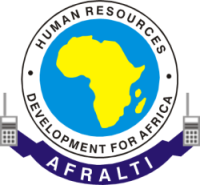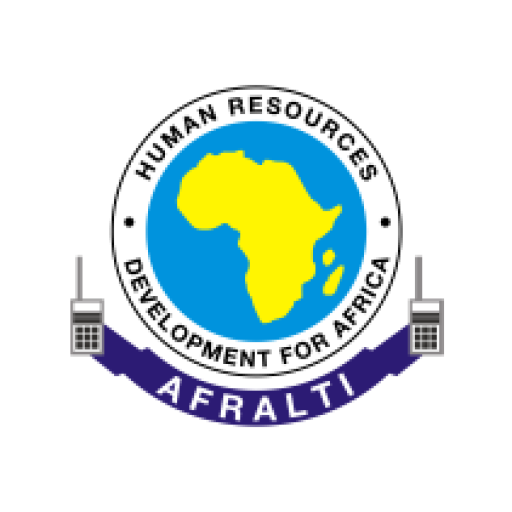
Title: Open Source & Responsible AI for Public & Private Sector Training
Duration: 2 Days
Date: 10th– 11th September, 2024
Venue: PrideInn Azure Hotel, Westlands, Nairobi
The rapid advancement of technology and the increasing demand for efficient, transparent, and secure services have made it imperative for both public and private entities to adopt cutting-edge solutions. Mozilla, renowned for its commitment to open-source software and responsible AI, is launching a workshop aimed at equipping ICT professionals from both the public and private sectors with the necessary skills to harness these technologies.
The workshop will explore the dual themes of Open-Source Software (OSS) and Responsible AI across diverse sectors. Participants will gain a deep understanding of OSS principles, community engagement, and its economic impact, while also addressing adoption challenges and promoting effective strategies for growth. The session on Responsible AI will cover essential topics such as bias and fairness, transparency, and ethical frameworks, equipping participants with the knowledge to implement responsible AI practices that positively impact their organizations and the wider public.
This workshop is designed for the following individuals who need to understand the implications of OSS in the society and responsible AI for effective governance.
- Government and private ICT professionals responsible for implementing and managing technology solutions in government agencies.
- Policy makers and officials who oversee technology policies, regulations, and strategies within government institutions.
- Project managers involved in managing ICT projects.
- Legal experts and compliance officers who need to ensure that the adoption of OSS and AI technologies adheres to legal standards, ethical guidelines, and regulatory requirements.
- Technology vendors and consultants of technology solutions and advisory services.
- Academics and researchers focused on the study of OSS, AI, and their applications.
- Representatives from NGOs, advocacy organizations, and civil society groups that focus on AI technology
Workshop Objectives
- Open Source for Innovation and Economic Development
- Discuss the core principles of Open Source Software and how it promotes innovation, collaboration, and cost savings.
- Discuss strategies for engaging with and supporting OSS communities.
- Explore how OSS drives economic development
- Identify challenges in adopting OSS and develop strategies to overcome them.
- Analyze successful OSS projects to extract best practices and lessons.
- Discuss the roles of government and private sector in advancing OSS through policies and collaboration.
- Responsible AI for Public and Private sector.
- Understand the principles and impact of ethical AI practices.
- Examine and address biases in AI systems to ensure fairness.
- Learn techniques to make AI systems transparent, interpretable, and explainable.
- Explore examples of responsible AI applications in government and their challenges.
- Evaluate existing ethical AI frameworks and guidelines and their application.
- Create strategies and regulatory frameworks for implementing ethical AI.
| DISCUSSION AREAS | ||||||
|---|---|---|---|---|---|---|
| SESSION 1: OPEN SOURCE FOR INNOVATION AND ECONOMIC DEVELOPMENT | i. Overview of Open Source (OS) Principles and Benefits • Defining Open Source - Core Principles and Philosophy • Key Benefits of Open Source: Cost Efficiency, Flexibility, and Innovation • Licensing Models and Legal Considerations in Open Source | ii. Community Engagement and Support • Building and Sustaining Open Source Communities • Collaborative Development: How Communities Drive Innovation • Best Practices for Contributing to and Benefiting from Open Source Projects | iii. The Economic Impact of Open Source Systems • Open Source as a Catalyst for Innovation and Economic Growth • The Role of Open Source in Reducing Technology Costs and Barriers • Case Studies: Open Source Contributions to National Economies | iv. Adopting Open Source Systems – Challenges & Strategies • Common Challenges in OSS Adoption: Technical, Cultural, and Organizational • Strategic Approaches to Overcoming Barriers to OSS Implementation • Integrating Open Source with Proprietary Systems: Best Practices | v. Success Stories in the OSS Ecosystem • Highlighting Successful Open Source Projects and Initiatives • Lessons Learned from Open Source Leaders and Innovators • Case Studies of Government and Industry Adoption of Open Source |
vi. The Role of Government & Private Sector in Promoting Growth and Adoption of OSS • Policies and Incentives for Open Source Adoption • Public-Private Partnerships in the Open Source Ecosystem • The Future of Open Source: Trends and Opportunities for Growth |
| SESSION 2: RESPONSIBLE AI FOR PUBLIC AND PRIVATE SECTOR | i. Introduction to Responsible AI • Defining Responsible AI: Principles and Importance in Governance • The Role of AI in Modern Government Operations | ii. Bias and Fairness in AI Systems for Applications • Understanding Bias: Sources and Types in AI Systems • Mitigating Bias: Techniques and Tools for Ensuring Fairness in AI | iii. Transparency, Interpretability, and Explainability in AI Systems • The Need for Transparency in AI Decision-Making • Techniques for Enhancing Interpretability and Explainability of AI Models | iv. Applying AI in Services: Responsible Use Cases • Examples of AI Applications in Public Services, their Benefits and Risks • AI in Law Enforcement, Healthcare, and Social Services: Ethical Considerations • Balancing Innovation with Responsibility in AI-Driven Initiatives | v. Ethical AI Frameworks and Guidelines • Key Ethical Principles in AI: Accountability, Privacy, and Human Rights • Global and National AI Ethics Guidelines: An Overview • Developing and Implementing Ethical AI Frameworks in public and private Contexts | vi. Building a Responsible AI Strategy and Regulations • Components of a Comprehensive Responsible AI Strategy • Regulatory Approaches to Ensuring Responsible AI Use • Stakeholder Engagement and Collaboration in Developing AI Policies |
PROGRAMME
|
Day 1 |
|
||||||||||||||||||
|---|---|---|---|---|---|---|---|---|---|---|---|---|---|---|---|---|---|---|---|
|
Day 2 |
|
